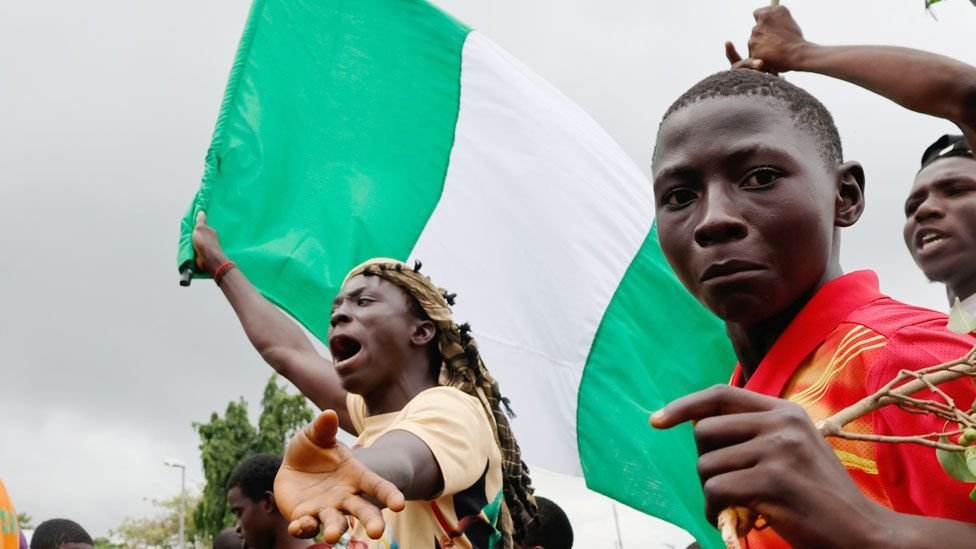In recent days, Nigeria has been gripped by widespread protests led predominantly by the youth, voicing their frustration over severe economic hardships and poor governance. These protests, which have resulted in significant casualties due to clashes with security forces, highlight the escalating tension and instability within the country. The demonstrations have major implications for Nigeria’s economy, which is already facing significant challenges.
Causes of the Protests
- Economic Hardships:
- Cost of Living Crisis: Nigeria is experiencing its worst cost-of-living crisis in a generation. In June 2024, inflation soared to a record high of 34.19%, with food inflation exceeding 40.87%. These skyrocketing prices have severely strained the purchasing power of Nigerians, particularly affecting small and medium-sized enterprises.
- Removal of Subsidies: The government’s decision to remove fuel and electricity subsidies has further exacerbated economic conditions. This move has led to increased costs for essential goods and services, fueling public discontent.
- Government Expenditure:
- Excessive Spending: Protesters are also outraged by the government’s lavish spending amidst economic hardship. Controversial expenditures include the proposed purchase of a new presidential yacht and additional presidential air fleets, alongside extensive renovation projects costing billions of naira. Such spending has been perceived as highly insensitive given the prevailing economic difficulties faced by the general populace.
Economic Impact of the Protests
- Market Instability:
- Business Disruptions: The protests have disrupted business activities across major cities like Abuja and Lagos. Road blockages and the heightened security presence have hindered the flow of goods and services, causing financial losses for businesses. This instability threatens to further weaken an already fragile economy.
- Investor Confidence:
- Reduced Foreign Investment: Ongoing unrest and the government’s heavy-handed response have likely eroded investor confidence. The uncertainty surrounding the political and economic environment makes Nigeria a less attractive destination for foreign investment, potentially leading to capital flight and reduced economic growth.
- International Reactions:
- Travel Warnings: Countries like the United States, United Kingdom, and Canada have issued travel advisories, warning their citizens about the potential for violence during the protests. Such warnings can have long-term effects on tourism and international business relations, further straining the economy.
Conclusion
The protests in Nigeria underscore the deep-seated economic and political challenges facing the country. The combination of severe economic hardships, perceived government excesses, and a lack of effective governance has catalyzed a movement that could have lasting impacts on Nigeria’s stability. Addressing these issues requires comprehensive economic reforms, transparent governance, and a commitment to alleviating the burdens faced by ordinary Nigerians.
Explore the Evolution of Crypto and Blockchain
Curious about how cryptocurrency and blockchain technology are evolving and shaping the future economy? Dive into our detailed article The Future of Cryptocurrency and Blockchain Technology to understand the potential impacts of these technologies.





